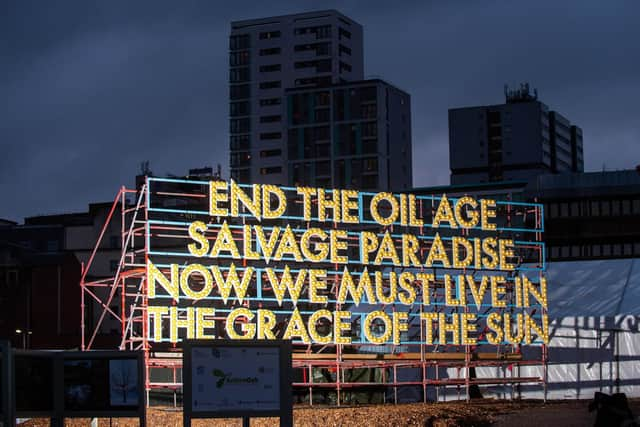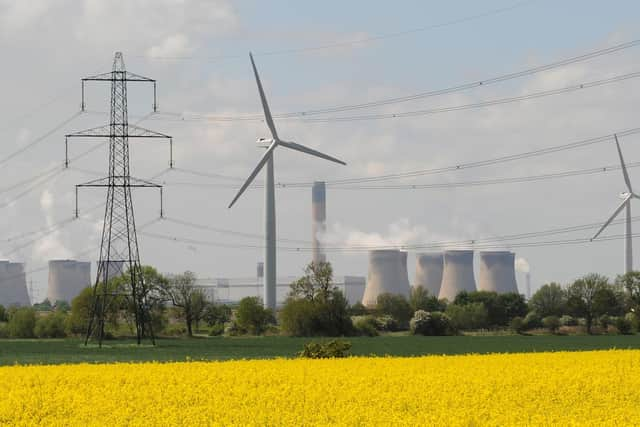Decarbonised heat set to evolve into nationwide network, climate boss claims
Martin Budd, climate change manager at Hull City Council, told a roundtable event that low carbon networks were currently an emerging market but that this had the potential to change.
Mr Budd said: “As the networks become more developed there is greater opportunity for greater engagement and bring more cities on board.
Advertisement
Hide AdAdvertisement
Hide Ad“It is an emerging market. It is a bit like when we had town gas. Every local authority had their own network and then slowly that got drawn into a national network. I think a similar thing will happen across heat networks.”


Mr Budd was speaking at a virtual event, jointly organised by The Yorkshire Post and law firm Womble Bond Dickinson (WBD) on the challenges and opportunities that existed around decarbonising heat networks.
Charles Robson, partner at WBD, said a key issue for advancing decarbonised networks lay in their financial viability, but that the market and sector were both heading in the right direction.
“There are a number of things happening which are likely I think in the near to medium term to improve the financial viability of projects,” he said.
Advertisement
Hide AdAdvertisement
Hide Ad“We are at the point of the market development where attracting private sector investment at scale is what we need to achieve in order for heat networks to make a really meaningful contribution to decarbonising heat.”


Mr Robson went on to talk about an effective two-branch system in terms of the attitudes to local authorities when it came to decarbonised heat networks, with some councils keen to take on a central role in their development and willing to shoulder any associated risks, or those who wished to allocate the risk to other parties.
“I think we need as a sector to develop reasonably standardised approaches to deliverability,” he said.
“There is a benefit to all players of having a good shared understanding of how risk is allocated. If you combine that with a strong pipeline of deals you will be able to get the efficiencies into the delivery of networks.”
Advertisement
Hide AdAdvertisement
Hide AdFellow WBD partner Andrew Hirst added: What that will do is enable a greater degree of private sector investments.
“The majority of schemes are delivered at the moment through a combination of grants and public sector borrowing. The minority of funding used is from the private sector.
“BEIS’s aspiration is to ultimately have a self-sustaining heat networks market wherein the private sector is taking a greater role. If you have a clearly understood risk position and clear pipeline of work it will encourage investment as there will be much less cost of delivering projects in terms of due diligence.”
Mr Budd added that the progress of the process was now moving rapidly.
Advertisement
Hide AdAdvertisement
Hide Ad“It started to evolve slowly but we have tipped over the edge now and the ball is rolling very quickly,” he said.
Lee Evans, director at advisory firm Sustainable Energy, questioned the notion of whether traditional heating systems were actually cheaper, once the cost of their impact on the environment was factored in.
“I don’t think that business as usual is cheap any more,” he said.
He added: “The biggest risk is that we don’t decarbonise heat as a country and that we miss these opportunities to develop large-scale projects that the risk only increases.”
Advertisement
Hide AdAdvertisement
Hide AdGeorge Munson, energy and climate change manager at Leeds City Council, stressed that bringing people along with the changes was crucial.
He said: “Buy-in is absolutely fundamental. And the aptitude for risk is also important.
“Leeds is one of a small number of authorities that is actively developing and now operating quite large networks. There are three or four councils that I get together with on an informal basis to have a heart to heart with to talk about the challenges we are facing.”
Mr Budd added: “We are all on a similar learning curve about the risks that are out there but also about what is viable.”